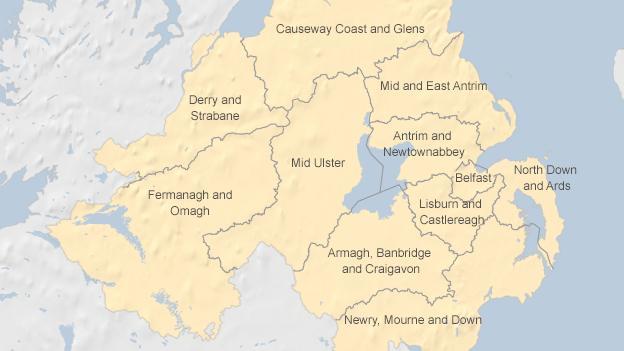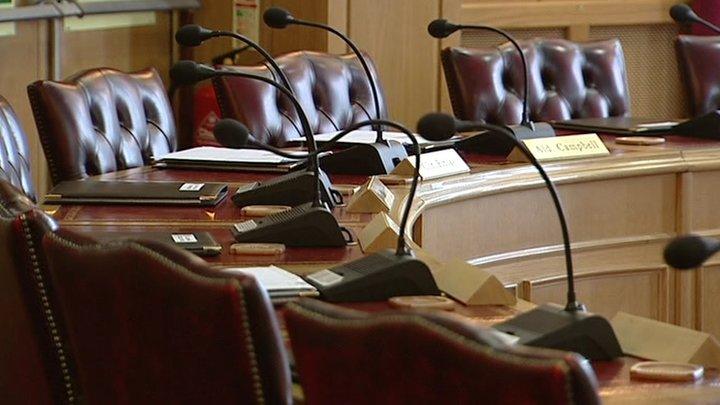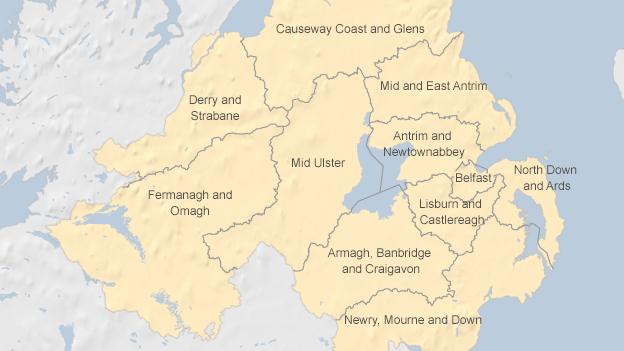Northern Ireland super council buildings cost criticised
- Published

Under a major reform of local government in Northern Ireland, 26 local councils are being re-organised into 11 super councils, which will have a much larger electorate
The building of a several new council headquarters ahead of the reform of public administration could leave ratepayers saddled with a bill for generations.
The claim has been made by a former boundary commissioner for NI.
Maurice Hayes said some of the council buildings were in danger of becoming "white elephants."
In May, voters will go to the polls to elect councillors to 11 "super councils" replacing the existing 26.
After the election, members will sit in shadow form for almost a year and among the things they will decide is where the administrative centre for each of the new councils will be sited.
But in spite of the uncertainty a number of existing councils have gone ahead and built expensive new headquarters without being sure what, if any, role they would still have in the new council set-ups.
Mr Hayes has accused some councils of making "a sort of pre-emptive bid for a headquarters centre, thinking if we put up a great building somebody's going to have to fill it".
Down District Council's new headquarters is the latest to appear. It opened in October 2012 at a cost of £11m.
The council is now about to spend more money - less than £30,000 it says - modifying the council chamber so that it can host meetings of the new super council in shadow form once it amalgamates with Newry and Mourne.
Newry and Mourne, meanwhile, plans to spend almost £350,000 on its dated headquarters so that it too can hold meetings of the same super council.
In another of the new council areas, Newtownabbey and Antrim, both of the existing councils have gleaming new civic buildings.
Councillors from the two areas have told the BBC Northern Ireland programme The View that they expect both to remain open as "community buildings" following the amalgamation.
But Mr Hayes told the same programme it would have been better if the issue of where the new super councils are to be administered had been settled well in advance by consensus.
"I think its unwise to tell you the truth. A lot of it...(is).. people making a sort pre-emptive bid for a headquarters centre, thinking 'if we put up a great building somebody's going to have to fill it', but that's not a universal rule you know," he said.
"There are white elephants all around the country. Because these things, they're going to saddle the ratepayers for generations ahead if they're not required."
However, Environment Minister Mark H Durkan, who is responsible for shepherding through the reform of public administration, said he was not concerned.
"This will be a decision for the new councils, how they use their assets or how they choose to dispose of their assets, " the minister said.
"However, what is vital and what I do have to do is to make sure that they do so in a way which represents best value for their ratepayers."
The View is on BBC One Northern Ireland at 22:35 GMT.
- Published19 March 2014

- Published13 December 2013
